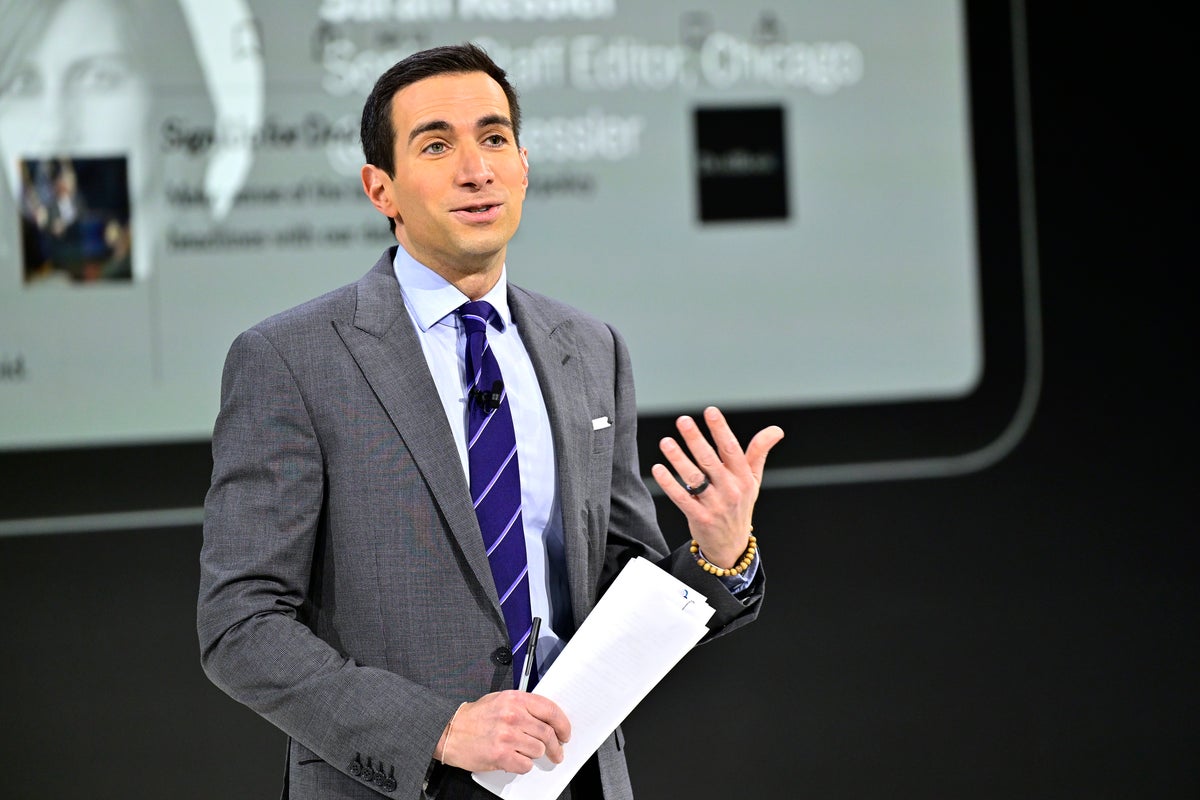Your support helps us to tell the story
From reproductive rights to climate change to Big Tech, The Independent is on the ground when the story is developing. Whether it’s investigating the financials of Elon Musk’s pro-Trump PAC or producing our latest documentary, ‘The A Word’, which shines a light on the American women fighting for reproductive rights, we know how important it is to parse out the facts from the messaging.
At such a critical moment in US history, we need reporters on the ground. Your donation allows us to keep sending journalists to speak to both sides of the story.
The Independent is trusted by Americans across the entire political spectrum. And unlike many other quality news outlets, we choose not to lock Americans out of our reporting and analysis with paywalls. We believe quality journalism should be available to everyone, paid for by those who can afford it.
Your support makes all the difference.Read more
Andrew Ross Sorkin, the author of Too Big to Fail and co-anchor of Squawk Box, said he has observed similarities between today’s economy in the United States and that of the economy before the 1929 Wall Street crash that led to the Great Depression.
Sorkin, a financial journalist who has been studying patterns in the economy, told 60 Minutes that the technological advancements bolstering the U.S. economy, combined with the Trump administration’s lessening of guardrails, feels like an echo from history.
“We will have a crash,” Sorkin told 60 Minutes in an episode that aired Sunday.
“I just can’t tell you when, and I can’t tell you how deep. But I can assure you, unfortunately, I wish I wasn’t saying this, we will have a crash,” Sorkin reiterated.
He pointed to the U.S. economy’s consistently strong growth over the last few years, which he attributed to a growing interest in advancing artificial intelligence and other technologies.

open image in gallery
Financial journalist Andrew Ross Sorkin sees similarities in today’s US economy with that of the economy in 1929, before the Great Depression (Getty Images for The New York Ti)
Although the stock market has seen dips and rises over the last few months as President Donald Trump imposes new tariffs – the economy has still been strong.
But Sorkin says he’s “anxious” that these prices are not sustainable and are being propped up by speculation and short-term interest in AI – similar to 1929, when ordinary investors took on speculative, risky and ultimately unsustainable investments.
Once traders and experienced investors realized markets could no longer go up, they dumped their shares – leaving the ordinary investor facing financial catastrophe.
Since the Great Depression, Congress has passed legislation to regulate investments and protect ordinary investors. Even more action was taken to protect average Americans after the 2008 Great Recession.

open image in gallery
Trump unloaded a baseline 10 percent tariff on nearly every one of the US trading partners in April. Since then, he’s imposed reciprocal tariffs that have impacted the US economy (Chip Somodevilla/Getty Images)
But the Trump administration has sought to dismantle some of those regulatory agencies, such as the Consumer Financial Protection Bureau, which protects people from predatory lenders or practices. Sorkin says the weakening of guardrails is also an unsettling sign.
“That’s what concerns me,” said Sorkin, whose new book 1929 addresses the Wall St Crash and its consequences. “It’s not that we’re going off a cliff tomorrow. It’s that there’s speculation in the market today, there’s an increasing amount of debt in the market today, and all of that’s happening against the backdrop of the guardrails coming off.”
Other financial experts have sounded the alarm as well, seeing the volatile markets as a sign of insecurity in investors. Jamie Dimon, the CEO of JPMorgan Chase, predicted that the impact of Trump’s sweeping tariffs and rising inflation would soon become tangible. Billionaire investor Ray Dalio also observed that the rising government debt and wealth inequality will create an internal crisis.
The future of the U.S. economy has become more uncertain with the sways that come with Trump’s tariffs on specific sectors, such as pharmaceuticals, steel and automobiles. His recent threats to impose 100 percent tariffs on China have added to the sense of economic uncertainty.

